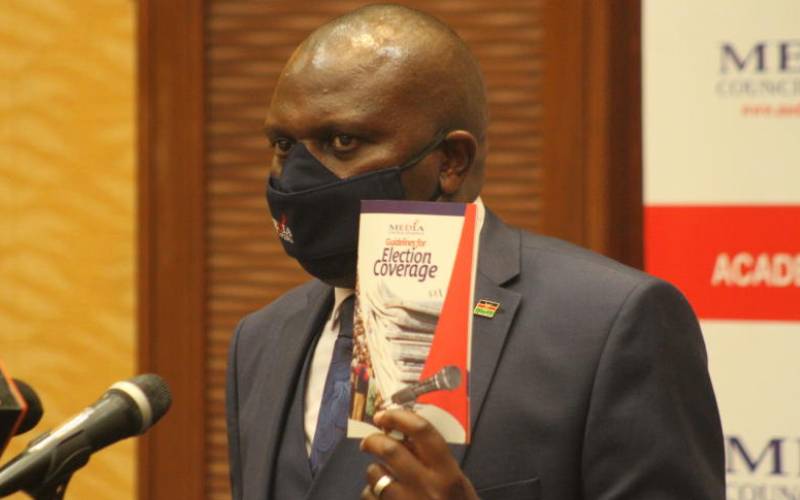×
The Standard e-Paper
Fearless, Trusted News

Media Council of Kenya CEO David Omwoyo. [Collins Kweyu, Standard]
Elections correspond to periods of heightened media coverage and reporting. With each political party angling to lead the country, tensions and occasional political violence are often witnessed during these transitional times.






